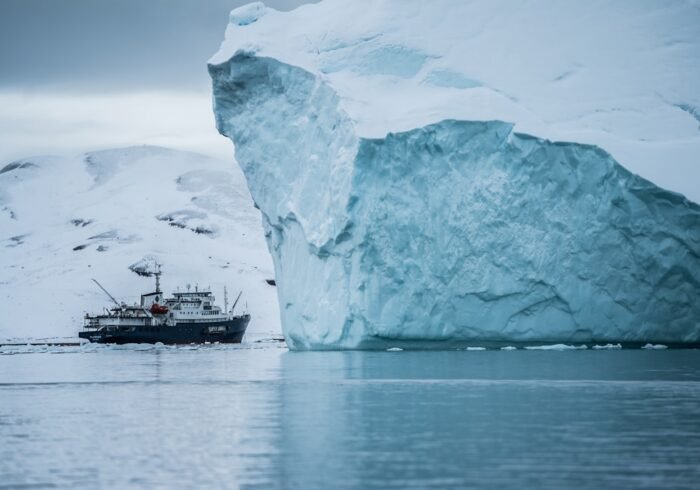The Effects of Plastic Waste Pollution on the Environment One of the most important environmental issues of the twenty-first century is plastic waste pollution. The amount of plastic that is produced & discarded each year is astounding; millions of tons wind up in landfills, the ocean, and natural habitats. In addition to degrading landscapes, this buildup of plastic endangers biodiversity and disturbs ecosystems. Plastics’ longevity, which contributes to their many uses, also means that they decompose into microplastics that enter soil and waterways and remain in the environment for hundreds of years.
Key Takeaways
- Plastic waste pollution has a significant impact on the environment, leading to habitat destruction, soil and water contamination, and harm to wildlife.
- Single-use plastics play a major role in contributing to pollution due to their widespread use and improper disposal, leading to long-term environmental damage.
- Plastic waste pollution has detrimental effects on marine life, causing entanglement, ingestion, and disruption of ecosystems, leading to a decline in biodiversity.
- Health risks associated with plastic waste pollution include exposure to harmful chemicals, ingestion of microplastics, and potential long-term health effects on humans and wildlife.
- Efforts to combat plastic waste pollution include the promotion of sustainable alternatives, clean-up initiatives, and the implementation of policies and regulations to reduce plastic usage and improve waste management practices.
Plastic waste has a variety of effects on the environment.
Flooding and disturbance of aquatic ecosystems can result from plastic debris-clogged waterways. Also, the manufacture and burning of plastic increases greenhouse gas emissions, which exacerbates climate change. Therefore, the pollution caused by plastic waste is not just a cosmetic problem; rather, it is a serious environmental emergency that needs immediate attention and action.
The Contribution of Single-Use Plastics to Pollution The global plastic waste crisis is largely caused by single-use plastics. Despite being made for convenience, items like plastic bags, straws, cutlery, and food packaging are frequently thrown away after only one use. Estimates indicate that single-use plastics make up almost half of all plastic produced worldwide, contributing to the exponential rise in plastic waste caused by this throwaway culture. The environmental cost of the convenience these products provide is high because they often wind up in landfills or the environment, where they can take centuries to break down. Because modern life moves quickly and consumers want convenience, single-use plastics are becoming more and more common.
But frequently, the short-term benefits of such consumption patterns are outweighed by the long-term effects.
There is a growing demand for alternatives and more sustainable practices that give priority to reusable materials over disposable ones as awareness of the negative effects of single-use plastics grows. The Impact of Marine Life on Plastic Waste Pollution The oceans are especially susceptible to the negative effects of plastic waste pollution. When marine life consumes and becomes entangled in plastic debris, it suffers greatly. Seabirds frequently eat tiny plastic particles because they believe they are food, and sea turtles mistake plastic bags for jellyfish.
| Country | Plastic Waste Generation (million tons/year) | Plastic Waste Mismanaged (million tons/year) |
|---|---|---|
| China | 59.8 | 8.82 |
| Indonesia | 3.2 | 1.29 |
| Philippines | 2.7 | 0.75 |
| Vietnam | 1.8 | 0.68 |
Internal injuries, malnourishment, and even death may result from these behaviors. Also, bigger marine creatures may get hurt or drown if they get tangled in abandoned fishing nets and other plastic waste. Individual species are not the only ones affected by plastic pollution; entire marine ecosystems are also impacted. Plastic waste has the potential to suffocate coral reefs, which are essential to marine biodiversity, preventing them from growing and surviving. Microplastics have also been discovered in fish and shellfish stomachs, which raises questions regarding the food chain and the consumption of tainted seafood by humans.
It may take generations to reverse the long-term ecological effects of plastic pollution, which upsets the delicate balance of marine ecosystems. The Health Risks Associated with Plastic Waste Pollution Plastic waste pollution is a serious health risk to both humans & wildlife. Bisphenol A (BPA) and phthalates, two chemicals used in the manufacture of plastics, can seep into food and drink items kept in plastic containers.
These chemicals are recognized endocrine disruptors and have been connected to a number of health problems, such as issues with reproduction, developmental disorders, and an elevated risk of developing some types of cancer. Concern over microplastics’ possible effects on human health is growing as they find their way into food sources. Also, exposure to hazardous materials released during the breakdown or incineration of plastics may increase health risks for communities close to landfills or plastic production facilities. Emissions from burning plastic waste can degrade the air quality, causing respiratory problems for locals. The relationship between environmental pollution & public health emphasizes how urgently comprehensive approaches to combat plastic waste pollution are needed in order to safeguard human populations & ecosystems.
Efforts to Address Plastic Waste Pollution To address the growing problem of plastic waste pollution, numerous local, national, and international initiatives have been developed. Single-use plastics are prohibited or subject to restrictions in many nations in an effort to lessen their ubiquity in daily life. To encourage consumers to adopt more sustainable practices, for example, a number of cities have passed laws banning plastic bags and straws.
These actions show that society’s attitudes toward plastic consumption need to change systemically. In addition, grassroots initiatives and non-governmental organizations (NGOs) have been instrumental in increasing public awareness of plastic pollution. Globally, campaigns have gained traction to inform the public about the significance of promoting alternatives & minimizing the use of plastic. People have been inspired to take action in their local communities by beach clean-ups and recycling initiatives.
These group initiatives demonstrate the effectiveness of community involvement in tackling environmental issues and promoting a sustainable culture. The Value of Recycling and Appropriate Waste Management In the battle against the pollution caused by plastic waste, recycling is essential. Using appropriate waste management techniques can drastically cut down on the quantity of plastic that ends up in landfills or the environment. Plastic recycling reduces the need for virgin materials by recovering and repurposing valuable resources into new products.
But in many areas, recycling rates are still low because of poor infrastructure, a lack of public awareness, and contamination problems. Promoting involvement in neighborhood recycling initiatives and educating consumers about appropriate recycling procedures are crucial for improving recycling efforts. Also, manufacturers can take a key role by investing in closed-loop systems that enable material reuse & designing products with recyclability in mind.
In order to lessen the effects of plastic waste pollution and move toward a more sustainable future, society should promote a culture that places a high priority on recycling and appropriate waste management. How Government and Policy Can Help Address Plastic Waste Pollution Effective government action is essential to tackling the problem. Policymakers can enact laws that restrict the production and use of plastics while encouraging the use of sustainable substitutes. International agreements to reduce plastic waste have accelerated as nations realize that addressing this global issue requires cooperation.
Initiatives like the United Nations’ Clean Seas campaign, for example, aim to persuade governments to reduce marine litter by changing laws and raising public awareness. Governments can also encourage businesses to embrace sustainable practices by offering tax breaks or grants to those that invest in cutting-edge recycling technologies or prioritize eco-friendly materials. On a local and global scale, governments can significantly reduce plastic waste pollution by establishing regulatory frameworks that promote responsible production and consumption patterns. The Prospects for Plastic Waste Pollution in the Future and Possible Remedies The prospects for plastic waste pollution in the future depend on people, companies, governments, and organizations all over the world working together. Even though the current trend points to a concerning rise in waste production and plastic production, innovation and a dedication to sustainability offer hope.
New technologies that convert plastics into recyclable materials or create biodegradable substitutes offer encouraging ways to lessen the crisis. Consumer behavior is still being influenced by public awareness campaigns to make more sustainable decisions. There may be a cultural shift that puts sustainability above convenience as people grow more conscious of how their actions affect the environment. Society can strive toward all-encompassing solutions that tackle the underlying causes of plastic waste pollution by encouraging cooperation among stakeholders from various sectors, from business executives to grassroots activists.
In summary, although the problems caused by the pollution of plastic waste are profound, they are not intractable. The tide can be turned against this widespread problem by coordinated efforts at all levels, including individuals making thoughtful decisions, companies embracing sustainable practices, and governments putting in place efficient policies. Awareness and action today are the first steps towards a cleaner environment free of plastic waste.
Plastic waste pollution is a pressing environmental issue that requires urgent action. According to a recent article on ecoguardians.shop, combatting global warming is crucial in addressing the climate crisis, which includes reducing plastic waste pollution. By implementing sustainable practices and reducing our reliance on single-use plastics, we can help mitigate the harmful effects of plastic pollution on our planet.



